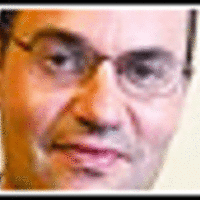Can the Midwest adapt to increased flooding?
Loading...
A new report from the Rocky Mountain Climate Organization offers some specific historical trends over the last 50 years for states such as Illinois and Ohio. Now that we have received this trend information about the increased flood risk that such states face, what do we do as Bayesian updaters? How do we adapt to this new reality? As a Climatopolis optimist, I bet that we will see individuals, firms and local governments taking pro-active steps to reduce their risk from these floods. Engineers will offer certain solutions to improve drainage and to build shielding infrastructure. Individuals will make investments (such as not keeping key stuff in their basement) to reduce their losses from flooding. Insurance companies will change their premium policies to incentivize the insured to take pro-active steps to reduce the probability that they will seek insurance after a flood event. For example, the insurance company could offer lower premiums for people who live in elevated homes or homes located outside of the new flood plains.
On page 29 and 30 of the RMCO report, the authors talk about strategies that the federal, state and local government can take to protect the midwest from flooding. But, they don't discuss individual choice by households and firms. Implicitly, these guys are embracing benevolent paternalism --- that only the government can save you from climate risk. I don't believe this. As I argue in Climatopolis, the combination of actions by individuals, firms and governments together will work towards achieving adaptation. Place based politicians such as the Mayor of Cleveland will have an incentive to make his city more resilient to flooding because he will lose his skilled people if the town's quality of life suffers.
The RMCO report also doesn't devote enough time to adaptation to flooding. It returns again and again to mitigation. Of course, we would face less flooding if global GHG emissions decline but they are not going to decline. The RMCO should send a copy of their report to everyone in China and India and see if this treatment reduces the greenhouse gas emissions from the BRIC nations. Of course, it won't. That's the core free rider problem! Facing this unfortunate reality, we must prepare to adapt and we have the right incentives to do so as we learn about the "new normal" and the challenges we will face under climate change.








